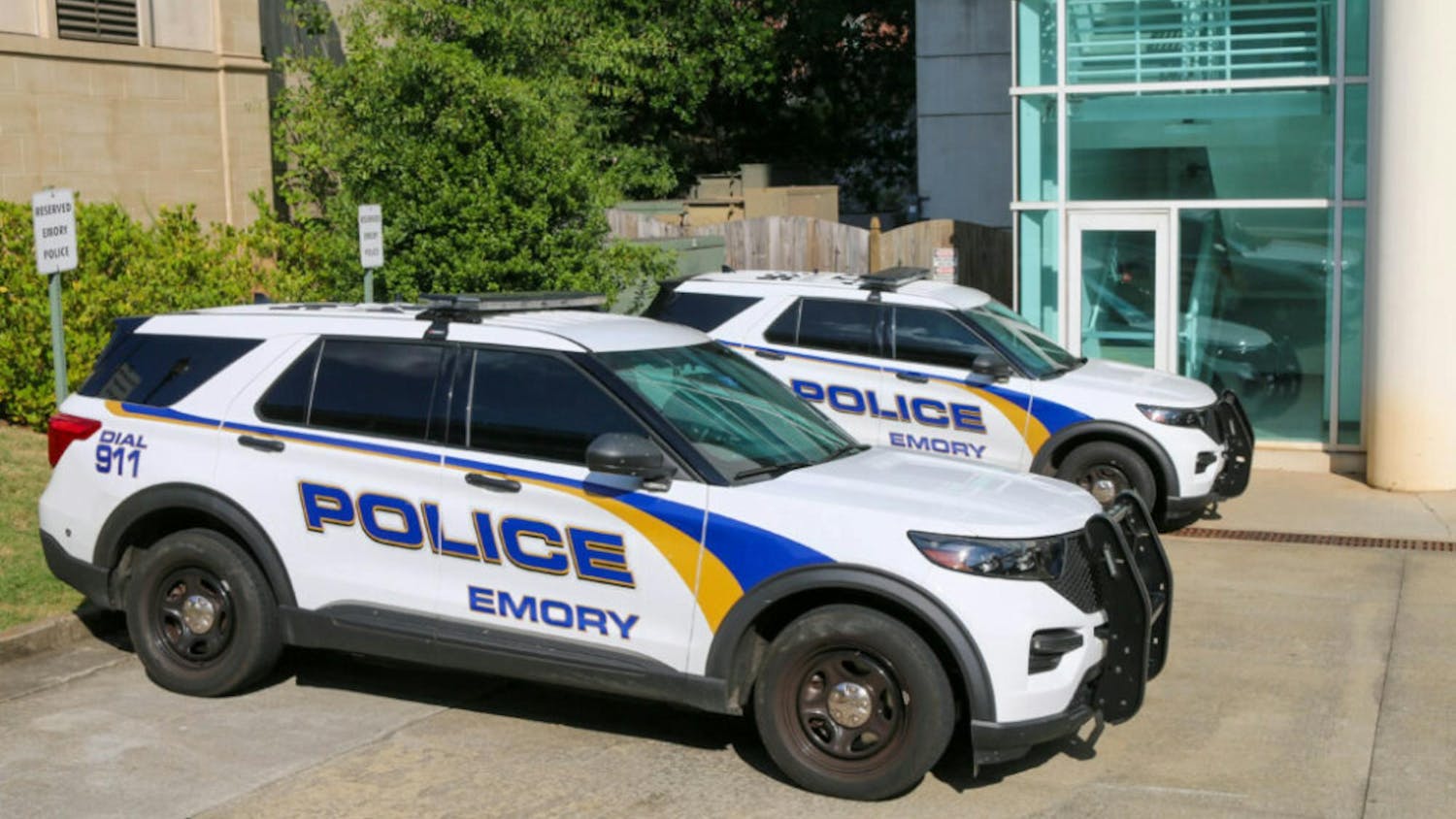
When police stopped Pete Williams for speeding along Georgia State Road 400 in 1985, instead of giving him a ticket, they took him into custody. A victim of sexual assault that had occurred earlier that month picked out Williams’ photo from a picture lineup. Williams said he had never seen the woman before but was charged with rape, aggravated assault and kidnapping. He was sentenced to 45 years in jail. Williams was 23 at the time.
Emory Pre-Law Society brought nonprofit Georgia Innocence Project (GIP) Deputy Director Grace Akan (12L) and exoneree Williams to Goodrich C. White Hall for a Feb. 22 event. About 40 people attended the event, where Williams shared his story and took questions.
“I was kidnapped,” Williams said to the audience. “I was taken off the streets.”
Pre-Law Society Freshman Representative Alex Chanen (21C) said the event was an effort to show the philanthropic side of lawyers.
“The Pre-Law Society has wanted to do outreach in the Atlanta area, and we thought the Georgia Innocence Project was a great way to show how lawyers are getting involved in not-for-profit work,” Chanen said.
Additionally, the GIP is connected to Emory, as Akan attended law school here before she joined the organization’s small staff.
At the event, Williams spoke about how he wrote to Georgia courts seven times and pleaded his innocence to no avail. In 2005, he wrote to the GIP, an independent nonprofit founded in 2002. According to Akan, the project aims to exonerate victims of wrongful convictions through post-conviction DNA testing.
Akan said that Williams’ letter was one of 7,000 the GIP has received since its start in 2002. She explained that the GIP only accepts identity-based cases with new DNA evidence that occur in Georgia or Alabama. They reject 95 percent of cases they recieve for failing to meet those strict criteria.
During her presentation, Akan demonstrated how eyewitness reports are often unreliable. She projected a sentence to the audience and asked how many times the letter F appeared while the sentence was still being displayed. Everyone guessed incorrectly. The audience disregarded the F’s in the word of, which appeared three times in the sentence. The point of the lesson was clear — even a careful observer can be mistaken.
“You’ll arrive at whatever results you think you need,” Akan said. “How you are preconditioned taints perception.”
According to Akan, untrustworthy eyewitness reports disproportionately affect negatively African Americans, who constitute 47 percent of America’s DNA exonerations, Williams among them. She also attributed wrongful convictions to other factors such as incentivized informants, prosecutorial misconduct and “junk science” like forensic tests such as fingerprint analyses. Akan said each case of wrongful conviction demonstrates a shortcoming in the judicial system that permits the conviction of innocent men, including Williams.
Chanen said the GIP’s work is instrumental to correcting “the epidemic of wrongful convictions in our country. It’s important to make sure we are convicting the right people.”
After the GIP received Williams’ letter, Akan said the GIP gathered documents and information to determine the credibility of William’s claim of injustice. It then recovered case evidence that can now be properly analyzed due to advancements in DNA technology.
At the time of Williams’ arrest, forensic technology could only determine the blood type of a sample. Today, it can determine genetic matches. After the GIP accessed stored evidence from William’s case, the GIP proved that Williams was innocent. Unfortunately, Williams wasn’t free yet.
“You do not have a right to be released on proof of your innocence,” Akan said, repeating herself for emphasis.
The process to gain exoneration can take decades. The GIP haggled with prosecutors, bringing the case back to court. Williams was freed eight months after his blood test match came back negative.
Ellie Studdard (18C) said that she attended the event to hear about the GIP.
“[Atlanta] is such a beacon of progress,” Studdard said. “There are so many local organizations that strive for justice and push for equality.”
Studdard said Williams’ personal strength and positivity made a lasting impression, noting that she felt “lucky” to have the opportunity to meet him and hear his story .
Williams’ release in 2007 was 22 years and eight months into his sentence.
“Wrongful convictions affect everyone in this room,” Akan said.
The real perpetrator of the crime Williams was accused of still walks free.
Nonprofit Project Uses DNA to Free Innocent Man
Ayushi Agarwal/Staff









